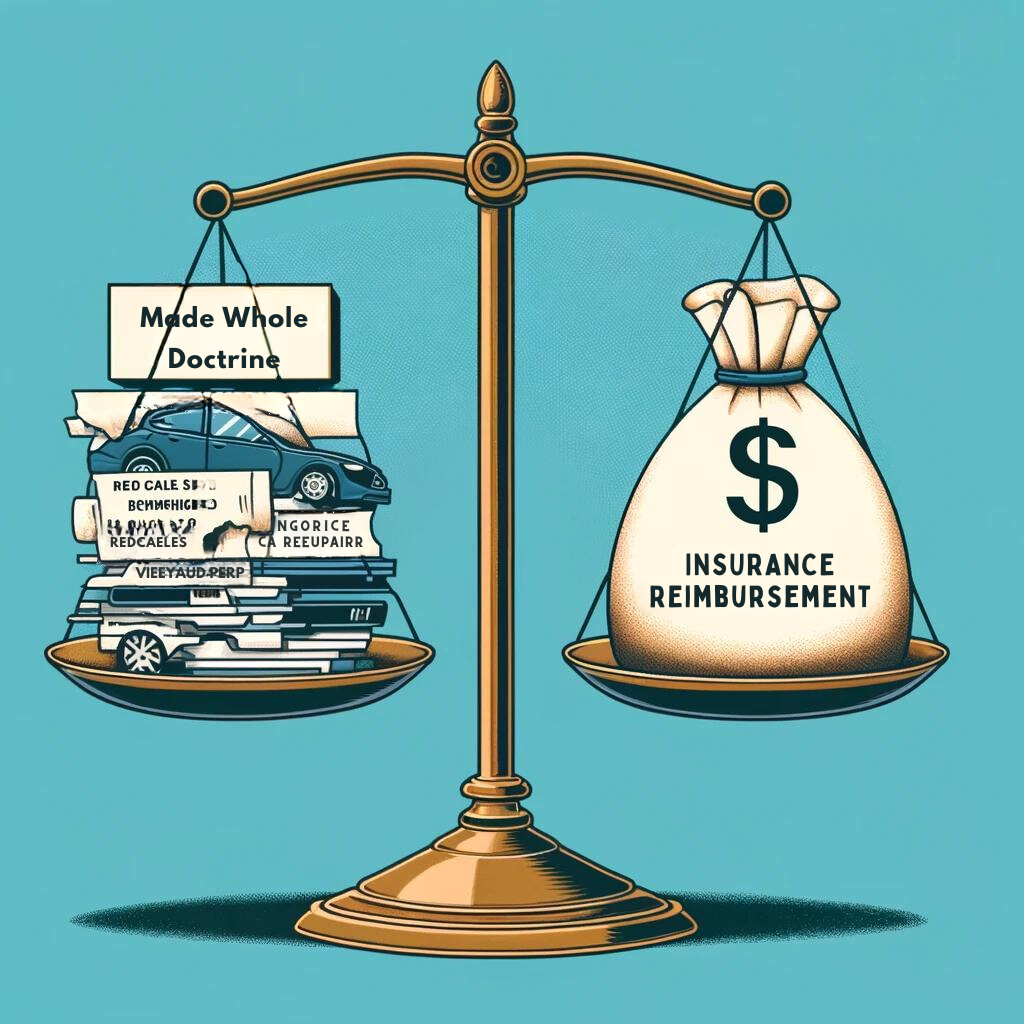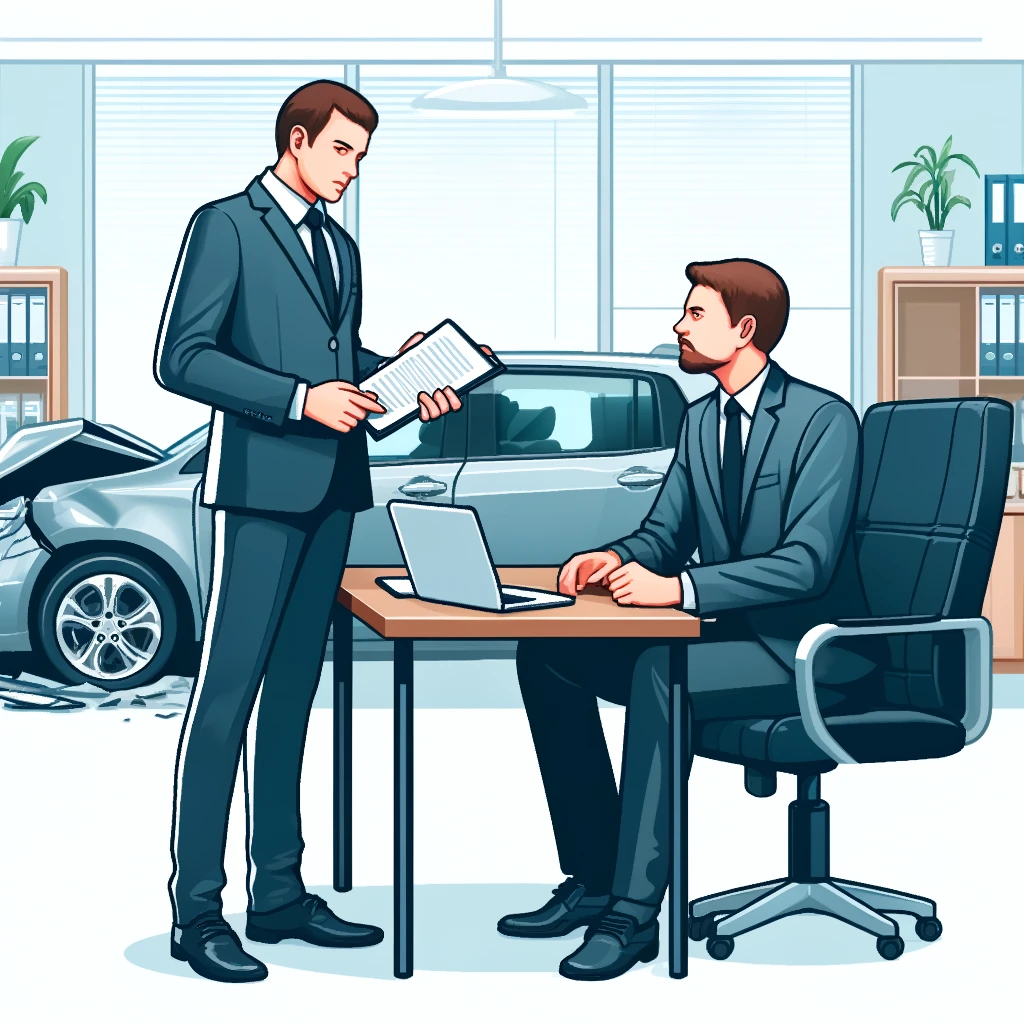Car accidents can be stressful, and when legal terms like subrogation pop up, things can get even more confusing. But worry not. In today’s blog, we will define subrogation in simple terms and walk you through the insurance process so that you can better understand how it works.
Subrogation may sound complex, but it can be helpful when you are involved in an accident that wasn’t your fault. The meaning of subrogation is actually simple—it’s about your insurance company recovering the costs of repairs from the at-fault driver’s insurance.
At Ponton Law, we have extensive experience dealing with insurance companies and are well aware of your concerns after a road accident. So, let us guide you through the mechanics of subrogation and demonstrate its significance from different angles.
Subrogation and Insurance: How It Affects Me?

Let’s start with a theoretical scenario. Imagine you are commuting back from work in Atlanta when suddenly, a reckless driver crashes into you. You and the at-fault driver survived the accident without scratches, but your car is damaged, which seems like a real headache. Fortunately, you have an insurance company that you can turn to. But how does the process go on from this point? Let’s break it down.
- Your insurance will try to determine the fault, then approve repairs and pay for it;
- Then, they will negotiate with the other driver’s insurance to get their money back through a subrogation claim;
- Your insurance company gets reimbursed by the at-fault driver’s insurance company.
It’s important to note that the process may sometimes involve more complex developments. However, what you just saw from our example was subrogation in action. You can think of it as an insurance company acting as your representative to get your car fixed. This way, you can get your vehicle repaired quickly while your insurance compensates for the repair costs later. Generally speaking, it’s a win-win situation for both parties.
Subrogation Insurance in Georgia: How Does It Work?

Subrogation laws differ across the states, and Georgia has a unique approach to this. More specifically, in Georgia, a “Made Whole Doctrine” works in favor of the accident victims. “Made Whole Doctrine” prohibits insurance companies from seeking reimbursement until they cover all your expenses related to the accident.
Let’s discuss another scenario: Imagine your car crash resulting in injuries that require lengthy recovery. In this case, you may have medical bills piled up. You may also face the risk of losing wages while enduring pain and suffering. With the “Made Whole Doctrine” in place, your insurance company must prioritize your recovery before pursuing subrogation for repairs. In other words, Georgia’s legislation ensures that your insurance has every motivation to reimburse you to the fullest; otherwise, they won’t be able to seek compensation.
If you have had a car accident in Georgia and want to know more about the “Made Whole Doctrine,” call us for a free consultation at (404) 850-9516. Our experienced legal team at Ponton Law can explain the doctrine in detail and its potential benefits for your specific situation.
What Happens When I Receive a Subrogation Claim Against Me?
It’s time for another hypothetical scenario. This time, imagine that you are the at-fault driver and receive a subrogation claim. You can consider a few things when you face such a situation.
- Go Through the Claim Carefully: Read the claim and identify all the essential details, such as dates, repair costs, etc. Double-check everything to ensure all the details match your understanding of the accident.
- Get in Touch With Your Insurance: Never hesitate to contact your insurance company. You are paying them for their service, so take advantage of it. Keep in mind that receiving such a claim is rare. This means that you may be potentially dealing with a false subrogation claim. So, turn to your insurance for more clarifications.
- Get Legal Assistance: It would also be best to involve a professional. Seek legal help and have a lawyer examine the claim. Contact our Atlanta auto accident insurance law firm. We will study the claim for you carefully and advise on what steps you need to take. Having a professional by your side can save you time and money.
What Is the Subrogation Waiver?

Sometimes, when you are involved in a car accident, the at-fault driver may offer you a settlement through their insurance company. However, it is crucial to know that some insurance companies may try to include a subrogation waiver clause in the contract. This clause may seem harmless, but it can work against you. Let’s first clarify the meaning of the waiver of subrogation.
The subrogation waiver clause states that your insurance company will not be able to recover the money they spent on repairs from the at-fault driver’s insurance company. This implies that if the at-fault driver’s insurance does not cover all the expenses, your insurance company cannot pay for the remaining costs, as they will not be compensated later due to the waiver.
In this waiver of subrogation example, the best way to avoid legal complications and protect your rights would be to seek legal assistance. An attorney can explain the implications of waiver of subrogation in your case, negotiate a fair settlement, and ensure that your rights are protected in the interplay of the two insurance companies.
Call Ponton Law Attorneys Today
Facing a car accident can be overwhelming, especially when legal terms and insurance complexities come into play. Ponton Law attorneys can assist you in navigating the subrogation process. We’ll deal with insurance companies on your behalf, ensuring they prioritize your needs and that you get a fair settlement.
Do not go through the aftermath of a car accident alone. Contact our Atlanta law firm for support in your auto insurance claim.

